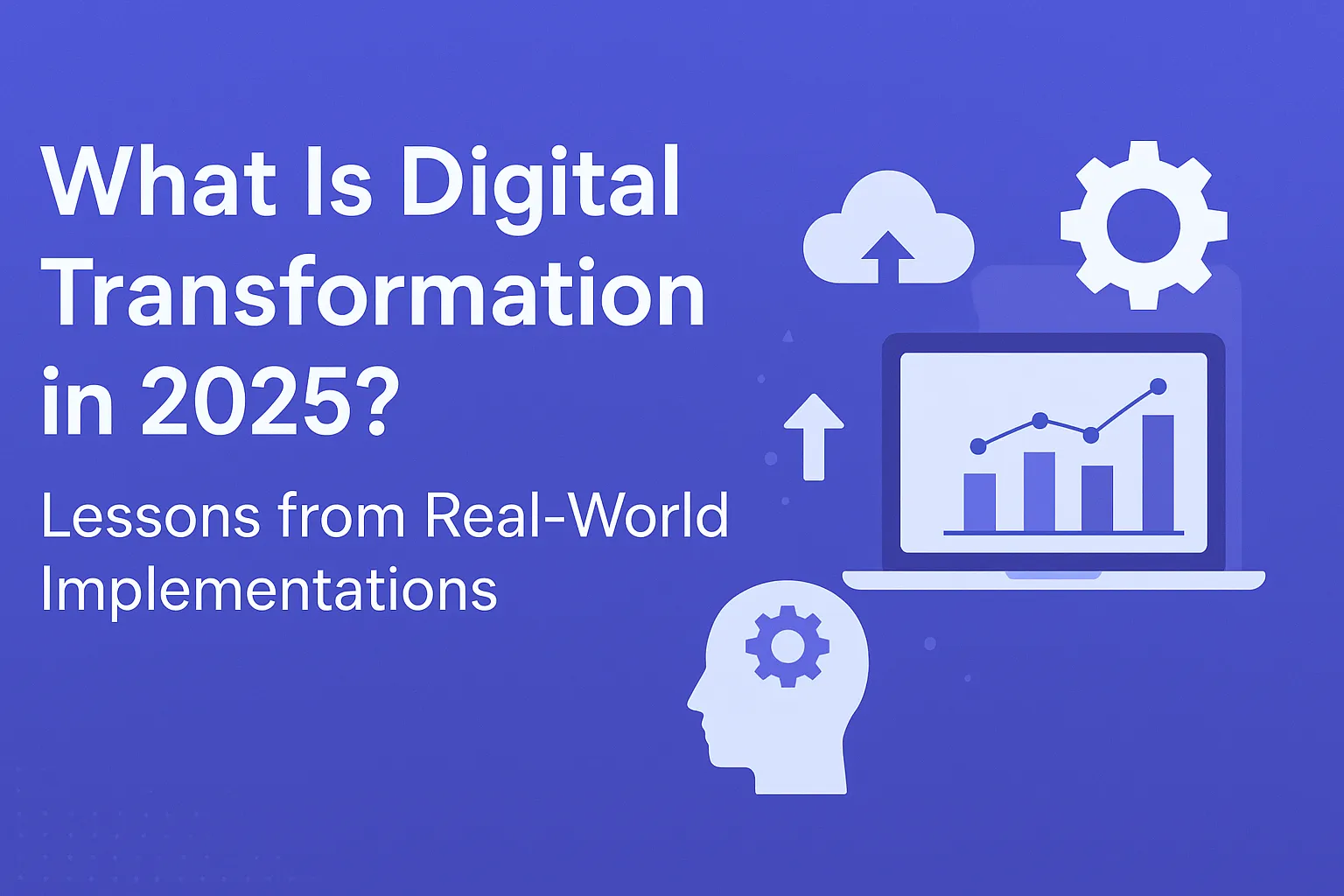Enterprise Software Solutions & Web Application Development: A Comprehensive Guide for Ontario Businesses

2025-05-15 • by Will Coulter
Why Ontario Businesses Are Embracing Enterprise Software Solutions
In today’s rapidly evolving business landscape, Ontario companies across manufacturing, finance, healthcare, and technology sectors are discovering that off-the-shelf software often falls short of addressing their complex operational needs. The province’s diverse economy—from Toronto’s financial district to Waterloo’s technology corridor to Windsor’s manufacturing base—requires solutions tailored to specific industrial demands and regulatory environments.
This growing recognition has sparked a significant shift toward custom enterprise software solutions and web application development across Ontario’s business ecosystem.
“After years of cobbling together different software packages, we invested in a custom enterprise solution. The efficiency gains were immediate—our processing times decreased by 43% within the first quarter.” — CFO, Ontario Manufacturing Company
Enterprise Software vs. Off-the-Shelf: What Ontario Businesses Need to Know
Before diving into development strategies, it’s essential to understand when enterprise software solutions make sense for your Ontario business.
Signs Your Ontario Business Has Outgrown Generic Software:
-
You’re managing Ontario-specific compliance across multiple systems
- Ontario businesses face unique regulatory requirements, from provincial privacy laws to industry-specific regulations
- Enterprise software can consolidate compliance management into unified systems
-
Your teams waste time transferring data between disconnected systems
- Information silos drain productivity and introduce error risks
- Enterprise solutions offer seamless data flow across departments
-
Customer experiences suffer from system limitations
- Ontario’s competitive market demands exceptional customer experiences
- Custom applications provide the flexibility to deliver exactly what your customers need
-
Growth initiatives are constrained by rigid software capabilities
- As your Ontario business expands, off-the-shelf software often becomes a limitation
- Enterprise solutions scale with your business and adapt to changing market conditions
-
You’re paying for features you don’t use while missing ones you need
- Generic software rarely provides a perfect fit for specialized Ontario industries
- Custom development ensures you only pay for functionality that delivers value

Key Enterprise Software Solutions Transforming Ontario Businesses
Ontario’s business landscape features several dominant industries, each with unique software requirements. Here’s how enterprise solutions are addressing these sector-specific needs:
Manufacturing & Supply Chain
Ontario’s manufacturing sector—particularly strong in the Windsor-Essex, Hamilton, and Niagara regions—faces intense global competition. Enterprise software provides critical advantages:
- Advanced ERP Systems: Integrated production tracking with Ontario supplier networks
- Supply Chain Visibility: Real-time monitoring of shipments across Ontario’s transportation corridors
- IoT Integration: Connecting factory floors across the province for centralized monitoring
- Predictive Maintenance: Reducing costly downtime in Ontario’s production facilities
Financial Services
Toronto’s position as Canada’s financial hub means Ontario financial institutions require exceptionally secure, compliant software:
- Regulatory Compliance Systems: Automated adherence to Ontario Securities Commission requirements
- Integrated Risk Management: Province-specific risk assessment frameworks
- Client Relationship Management: Unified views of complex client relationships
- Fraud Detection: AI-powered systems that identify suspicious patterns in real-time
Healthcare Solutions
Ontario’s healthcare system demands specialized software that ensures patient privacy while improving care coordination:
- Electronic Health Records: Ontario-compliant patient data management
- Telehealth Platforms: Connecting patients across Ontario’s vast geography with specialists
- Resource Allocation Systems: Optimizing healthcare staffing across facilities
- Patient Engagement Portals: Improving access to healthcare information and services
Technology Sector
Waterloo and Toronto’s thriving tech ecosystems rely on advanced development tools:
- DevOps Automation: Streamlining software delivery pipelines
- Analytics Platforms: Converting data into actionable insights
- Collaboration Suites: Connecting distributed teams across Ontario’s tech hubs
- Customer Success Systems: Ensuring client retention and expansion
💡 PRO TIP: Ontario businesses should consider how their enterprise software solution
will integrate with provincial government systems they interact with regularly.
This can significantly reduce administrative burden when dealing with provincial
reporting requirements, tax filings, and compliance documentation.Web Application Development: The Foundation of Modern Enterprise Solutions
Web applications have become the primary delivery method for enterprise software solutions, offering Ontario businesses significant advantages over traditional desktop applications:
Strategic Benefits of Web Application Development for Ontario Companies
| Benefit | Impact on Ontario Businesses |
|---|---|
| Geographic Accessibility | Connect teams across Ontario’s dispersed business centers |
| Device Independence | Support BYOD policies without compatibility concerns |
| Simplified Deployment | Update once for all users without disrupting operations |
| Reduced IT Overhead | Lower maintenance costs through centralized management |
| Scalability | Accommodate growth as your Ontario business expands |
| Enhanced Security | Implement provincial-standard security protocols centrally |
Essential Components of Enterprise Web Applications for Ontario Industries
Modern enterprise web applications for Ontario businesses typically include:
-
Responsive User Interfaces: Accessible from both downtown Toronto offices and remote Northern Ontario locations
-
Role-Based Access Control: Particularly important for Ontario healthcare and financial services with strict privacy requirements
-
Integration Capabilities: Connecting with other systems through secure APIs
-
Advanced Analytics: Providing business intelligence specific to Ontario market conditions
-
Multi-Tenant Architecture: Supporting multiple business units across different Ontario locations
-
Offline Functionality: Critical for businesses operating in remote Ontario regions with limited connectivity

The Development Process: What Ontario Businesses Should Expect
Understanding the enterprise software development process helps Ontario businesses plan effectively and allocate resources appropriately:
1. Discovery & Requirements Analysis
This critical initial phase involves:
- Stakeholder interviews across departments and locations
- Process mapping of existing workflows
- Identification of Ontario-specific regulatory requirements
- Competitive analysis within the provincial market
- Defining success metrics aligned with business objectives
2. Architecture & Design
During this phase, the development team will:
- Create technical specifications for approval
- Design database structures optimized for your data volumes
- Develop user interface mockups for stakeholder feedback
- Plan integration points with existing Ontario supplier or customer systems
- Establish security protocols that meet or exceed Ontario standards
3. Development & Testing
The construction phase includes:
- Agile development sprints with regular progress reviews
- Continuous integration and deployment pipelines
- Comprehensive testing, including Ontario-specific use cases
- Performance optimization for expected user loads
- Security audits and vulnerability assessments
4. Deployment & Training
Launching your enterprise software involves:
- Data migration from legacy systems
- User training customized for different Ontario office locations
- Staged rollout across departments or business units
- Monitoring system performance under real-world conditions
- Documenting processes and creating support resources
5. Ongoing Support & Evolution
Enterprise software requires continuous attention:
- Proactive monitoring and maintenance
- Regular updates to address security concerns
- Feature enhancements based on user feedback
- Adaptations to changing Ontario business conditions
- Performance optimization as usage patterns emerge
“The most successful enterprise software implementations we’ve seen across Ontario businesses follow a phased approach with clear milestones and extensive stakeholder involvement. This significantly reduces resistance to change and accelerates adoption.” — Senior Project Manager, Ontario Technology Consultancy
Cost Considerations for Ontario Businesses
Enterprise software represents a significant investment, but Ontario businesses have several advantages when budgeting for these projects:
Investment Ranges for Ontario-Based Projects
While costs vary based on complexity, Ontario businesses can generally expect these investment ranges for enterprise solutions:
- Small-Scale Enterprise Applications: $75,000 - $150,000 CAD
- Mid-Size Business Solutions: $150,000 - $500,000 CAD
- Large Enterprise Implementations: $500,000 - $2,000,000+ CAD
Ontario-Specific Funding and Tax Advantages
Ontario businesses have access to several programs that can offset development costs:
-
Ontario Business Research Institute Tax Credit: Up to 20% refundable tax credit for eligible R&D expenditures
-
Canada-Ontario Job Grant: Funding for staff training on new enterprise systems
-
FedDev Ontario Business Scale-up and Productivity Program: Low-interest financing for technology acquisition and implementation
-
Scientific Research and Experimental Development (SR&ED) Tax Incentives: Significant credits for innovative software development
-
Ontario Innovation Tax Credit: 8% refundable tax credit for qualifying expenditures
💡 PRO TIP: Ontario businesses should structure their enterprise software development
contracts to maximize eligibility for provincial and federal tax incentives.
Working with development partners familiar with these programs can significantly
reduce overall project costs.Selecting the Right Development Partner in Ontario
Choosing an appropriate development partner is critical for enterprise software success. Ontario businesses should consider these factors:
Key Evaluation Criteria
-
Ontario Industry Experience: Partners with experience in your specific Ontario sector understand provincial regulations and market dynamics
-
Technical Expertise: Ensure the team has experience with technologies appropriate for your requirements
-
Development Methodology: Look for transparent processes with regular milestones and stakeholder involvement
-
Support Capabilities: Confirm they offer support during Ontario business hours with appropriate response times
-
Client References: Speak with other Ontario businesses of similar size about their experiences
-
Cultural Alignment: Find partners who understand Ontario business practices and communication styles
Red Flags to Watch For
Be cautious of development partners who:
- Cannot provide examples of similar work for Ontario businesses
- Propose unusually low estimates compared to other quotes
- Lack clear project governance and change management processes
- Are unwilling to introduce you to their technical team members
- Cannot articulate how they’ll address Ontario-specific compliance requirements
Case Studies: Ontario Success Stories
Manufacturing Excellence Through Integrated Systems
A Kitchener-based manufacturer implemented an enterprise resource planning system with custom modules for their specialized production processes. The results included:
- 27% reduction in production cycle times
- Inventory carrying costs decreased by 32%
- 99.8% on-time delivery to Ontario automotive clients
- ROI achieved within 14 months of implementation
Healthcare Coordination Platform
A network of healthcare providers across Southwestern Ontario deployed a custom patient management system that:
- Reduced appointment no-shows by 42%
- Decreased administrative staff workload by 23%
- Improved billing accuracy, reducing claim rejections by 38%
- Enhanced patient satisfaction scores by 29%
Financial Services Client Portal
A Toronto wealth management firm developed a custom client portal that:
- Increased client assets under management by 34%
- Reduced account servicing costs by 41%
- Improved client retention from 87% to 96%
- Generated 28% more referrals from existing clients

Emerging Trends in Enterprise Software for Ontario Businesses
To remain competitive, Ontario businesses should stay aware of these emerging enterprise software trends:
AI and Machine Learning Integration
Ontario companies are increasingly incorporating AI capabilities:
- Predictive analytics for equipment maintenance in manufacturing
- Customer behavior modeling in financial services
- Clinical decision support in healthcare settings
- Automated quality control in production environments
Low-Code Development Platforms
These platforms are gaining traction for several reasons:
- Faster deployment of business applications
- Reduced dependency on scarce development talent
- Greater business stakeholder involvement
- Lower total cost of ownership
Microservices Architecture
This approach offers Ontario businesses important advantages:
- Greater flexibility to adapt individual components
- Improved resilience and fault isolation
- Easier integration with third-party services
- More efficient resource utilization
Enhanced Security Frameworks
As cyber threats evolve, Ontario businesses are prioritizing:
- Zero-trust architecture implementation
- Advanced threat detection capabilities
- Compliance automation for provincial regulations
- Secure remote access for distributed workforces
Preparing Your Ontario Business for Enterprise Software Implementation
To maximize the return on your enterprise software investment, consider these preparation strategies:
Internal Readiness Assessment
Before approaching development partners:
-
Document Current Processes: Map existing workflows with pain points and inefficiencies
-
Identify Key Stakeholders: Ensure representation from all affected departments
-
Establish Success Metrics: Define clear, measurable objectives for the implementation
-
Assess Data Quality: Clean and organize existing data before migration
-
Evaluate Technical Infrastructure: Determine if upgrades are needed to support new systems
Change Management Strategies
Enterprise software implementations often fail due to resistance rather than technical issues:
-
Executive Sponsorship: Secure visible support from leadership across all Ontario locations
-
Communication Plan: Develop a strategy for keeping all stakeholders informed
-
Training Program: Create comprehensive training tailored to different user roles
-
Quick Wins: Identify opportunities for early successes to build momentum
-
Feedback Mechanisms: Establish channels for users to report issues and suggest improvements
💡 PRO TIP: Create a "digital transformation committee" with representatives from
each department and each major Ontario location. This group should meet regularly
throughout the project lifecycle to address concerns and ensure the solution
meets the needs of all stakeholders across your organization.Conclusion: Driving Ontario Business Success Through Enterprise Software
Enterprise software solutions and web application development represent transformative opportunities for Ontario businesses across all sectors. By implementing systems tailored to your specific operational needs and Ontario’s unique business environment, your organization can achieve:
- Significantly improved operational efficiency
- Enhanced customer experiences that drive loyalty and growth
- Data-driven decision making capabilities
- Competitive advantages in increasingly challenging markets
- Scalable platforms that support your long-term business objectives
The most successful Ontario organizations recognize that enterprise software is not merely an IT expense but a strategic investment in business capabilities. By approaching these projects with appropriate planning, stakeholder involvement, and partner selection, your Ontario business can realize substantial returns that justify the initial investment many times over.
Whether you’re considering your first custom enterprise application or looking to replace aging legacy systems, the potential benefits make this an initiative worth pursuing with appropriate diligence and resources.
About the Author
This article was written by Will Coulter, a technology strategist specializing in enterprise software solutions for Ontario businesses. With over 12 years of experience guiding digital transformation initiatives across manufacturing, financial services, healthcare, and technology sectors, Will helps Ontario companies leverage custom software to achieve their strategic objectives. Need guidance on your enterprise software journey? Contact us today for a free consultation to explore how custom solutions can transform your Ontario business.
Last Updated: May 15, 2025


